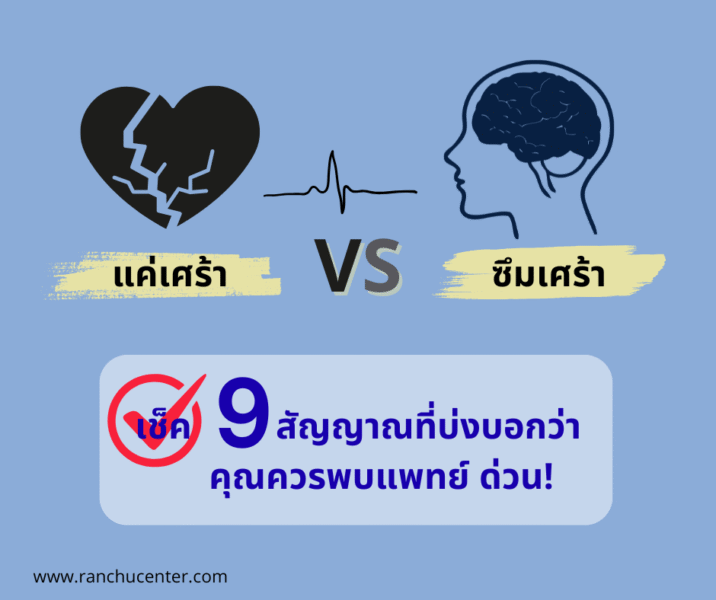Stress Management Techniques: Your Guide to Overcoming Stress
เวลาอ่านโดยประมาณ: 8 นาที
Key Takeaways
- Understanding stress is crucial for effective management.
- Effective stress management improves mental clarity, emotional stability, and overall health.
- Techniques like meditation, breathing exercises, and physical activity can significantly reduce stress.
- Organizing workload and engaging in hobbies are practical ways to manage stress.
- Building support networks and seeking professional help can enhance stress management.
Table of contents
Stress is a natural bodily response to perceived threats or challenges. When we face situations that challenge us, be it at work, in relationships, or health concerns, our body reacts in a variety of ways. Common causes of stress include heavy workloads, financial worries, and interpersonal conflicts. Stress management techniques play a crucial role in helping us cope with these pressures effectively.
It’s essential to manage stress effectively. Uncontrolled stress can negatively impact both mental and physical health. This blog will delve into various stress management techniques, discussing ways to reduce stress and ideas for coping with stress to enhance your well-being. You might also find the blog on Stress Management in Daily Life helpful for more practical tips.
อ้างอิง:Stress Management in Daily Life
Understanding Stress
Stress affects everyone. It’s crucial to understand what stress really is and how it manifests.
Physiological Effects of Stress
Stress triggers a series of physiological responses in the body:
– Elevated Heart Rate: Your heart may beat faster when you’re stressed.
– Increased Blood Pressure: Blood pressure rises as the body prepares to deal with challenges.
– Hormone Release: Stress hormones, like cortisol, flood the body, leading to various reactions.
Psychological Aspects of Stress
On the psychological side, stress can present itself in several ways:
– Anxiety: A feeling of fear or dread about future events.
– Irritability: You may feel agitated and more prone to anger.
– Difficulty Concentrating: Stress can make it challenging to focus on tasks.
Recent statistics suggest that stress is prevalent among many people. According to research from the American Psychological Association, around 77% of people experience physical symptoms of stress. This data highlights the importance of implementing stress management techniques to counteract these effects (Source: APA Stress Statistics). For deeper insights, check out Understanding Depression Symptoms.
อ้างอิง:APA Stress Statistics, Understanding Depression Symptoms
Benefits of Stress Management
Utilizing effective stress management techniques offers a wide array of advantages, which include:
Improved Mental Clarity
When stress is managed effectively, your mind becomes clearer. You can focus better on tasks, leading to improved performance.
Emotional Stability
Stress management can contribute to emotional stability. This means you’ll likely feel happier and more balanced in your daily life.
Overall Health
By managing stress, you also take steps towards better physical health. Research shows that chronic stress can increase the risk of severe health conditions such as heart disease and diabetes, further making the case for effective stress relief strategies.
Productivity and Relationships
By implementing stress management techniques, you can improve your productivity at work and cultivate stronger relationships. A relaxed mind fosters better interactions with others, as detailed in the blog on Understanding the Importance of Mental Health.
อ้างอิง:Understanding the Importance of Mental Health
Stress Management Techniques
Adopting effective stress management techniques can significantly reduce your stress levels. Here are some noteworthy methods to consider:
Meditation and Mindfulness Practices
Meditation and mindfulness can help you cultivate a sense of calm. These practices encourage you to focus on the present and can reduce stress significantly. They include techniques like:
– Guided Meditations: Listen to recordings that help guide your thoughts.
– Mindfulness Exercises: Engage in tasks with full awareness.
Methodologies of mindfulness are elaborated in Self-Care Tips.
Breathing Exercises
Breathing exercises can help alleviate stress rapidly. The following techniques can be particularly calming:
– Deep Breathing: Inhale deeply through your nose, hold for a moment, and exhale through your mouth.
– 4-7-8 Breathing: Inhale for 4 seconds, hold for 7, and exhale for 8 seconds.
These techniques help calm your nervous system and can be found in the blog Understanding Stress and Its Management.
Time Management Techniques
Effective time management can alleviate stress caused by feeling overwhelmed. Consider using:
– The Pomodoro Technique: Work for 25 minutes, then take a 5-minute break.
– Task Prioritization: List tasks in order of importance to focus on critical tasks first.
Physical Activity and Exercise
Regular physical activity is known for its mood-enhancing benefits. Exercise releases endorphins, which help reduce stress.
– Simple Exercises: Activities like walking, jogging, or swimming can dramatically improve mood.
– Class Participation: Joining fitness classes can make exercising a fun social experience.
For a comprehensive understanding of the impact of physical activity on well-being, please refer to Understanding Mental Health Issues.
อ้างอิง:Self-Care Tips, Understanding Stress and Its Management, Understanding Mental Health Issues
Effective Ways to Reduce Stress
Incorporating practical ways to reduce stress into your daily life can lead to a happier, healthier you.
Prioritizing Workload
Setting boundaries is essential for effective stress management. Here’s how you can prioritize:
– Limit Work Hours: Set a cut-off time for your workday.
– Say No: It’s okay to decline additional responsibilities when feeling overwhelmed.
Engaging in Hobbies
Take time to engage in hobbies you genuinely enjoy. They can provide relaxation and joy, thus reducing stress levels. Activities such as:
– Reading: Escape into another world with a good book.
– Art: Engage in crafts or painting to express creativity.
Building Support Networks
Strong connections with friends and family are crucial for emotional support. Make time to nurture these relationships as they can help:
– Listen: Share your feelings with someone you trust.
– Seek Advice: Sometimes, just discussing your problems can lighten the load.
For further exploration of emotional support, visit Understanding Mental Health Support in Thailand.
อ้างอิง:Understanding Mental Health Support in Thailand
Stress Relief Strategies
Adding more stress relief strategies to your toolkit can be beneficial.
Journaling
Writing down your thoughts can provide clarity and serve as an emotional outlet. Consider starting a journal where you can express your feelings.
Nutrition’s Role
Eating nutritious foods can stabilize your mood. Include:
– Fruits and Vegetables: Rich in vitamins, they can uplift your spirits.
– Whole Foods: Opt for whole grains and lean proteins to maintain energy levels.
Sleep Routine
Adequate sleep is crucial for stress management. Establishing a consistent sleep schedule can greatly enhance your mood and overall health. Aim for:
– 7-9 hours of sleep each night.
– Bedtime Routine: Create a relaxing bedtime ritual to signal your body it’s time to wind down.
For various relaxation techniques, refer to The Power of Relationship Counseling.
อ้างอิง:The Power of Relationship Counseling
Coping with Stress
Coping with stress effectively requires deliberate strategies. Explore these techniques to bolster your approach.
Identifying Personal Stress Triggers
Start keeping a stress diary to track your responses to stressful situations. By identifying triggers, you can strategize ways to cope.
Positive Affirmations
Cognitive restructuring can help combat negative thoughts. Create positive affirmations to encourage a healthier mindset. For example:
– “I am capable and can handle this stress.”
– “Every challenge is an opportunity for growth.”
These reminders can be empowering; additional methods can be found in The Importance of Seeking Psychological Assistance.
อ้างอิง:The Importance of Seeking Psychological Assistance
Stress Management Exercises
Consider adding simple stress management exercises to your routine for relief.
Progressive Muscle Relaxation
This method involves systematically tensing and relaxing different muscle groups. Start with your toes, tensing for a few seconds, and then relaxing, working your way up to the head.
Guided Imagery
Visualization techniques can create a mental escape from stressors. Close your eyes and imagine a peaceful scene, focusing on all the sensory details.
Yoga and Stretching
Gentle yoga and stretching can significantly reduce tension. Some beneficial poses include:
– Child’s Pose: A restorative pose to relax and breathe deeply.
– Cat-Cow Stretch: Helps to release tension in the spine.
Refer to the blog on Understanding Depression Symptoms for a broader understanding of emotional well-being.
อ้างอิง:Understanding Depression Symptoms
สรุป
Incorporating stress management techniques into your daily routine can dramatically enhance your well-being. By understanding stress and applying various methods, you can develop your personalized stress-relief strategy. Experiment with these techniques to discover what works best for you.
We invite you to share your experiences and tips for managing stress effectively. Let’s support each other in our journeys toward a more peaceful life!
































